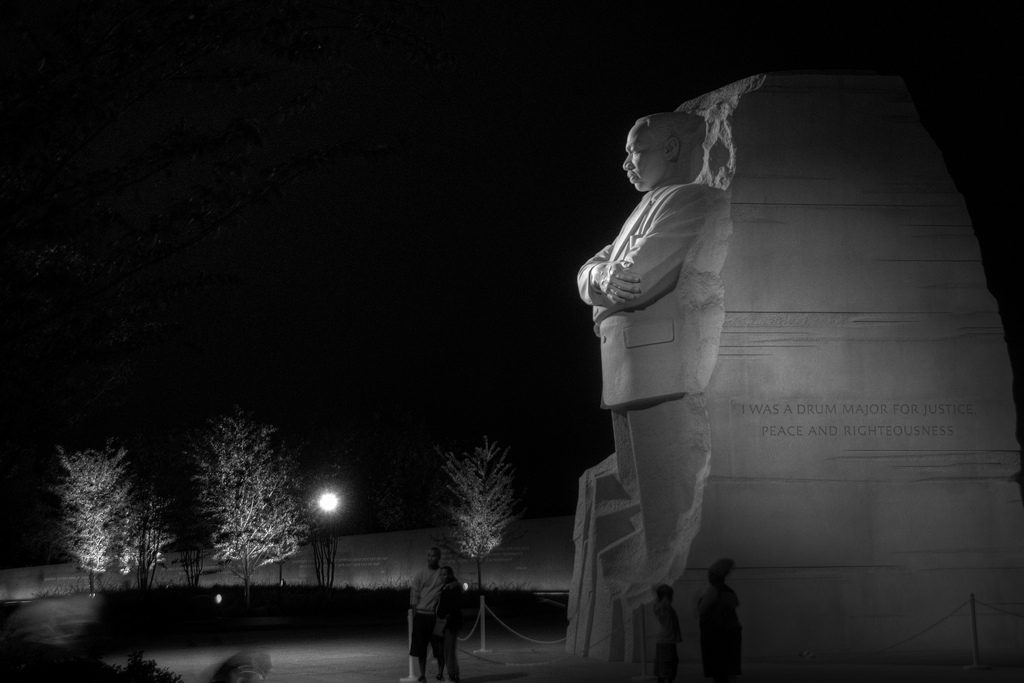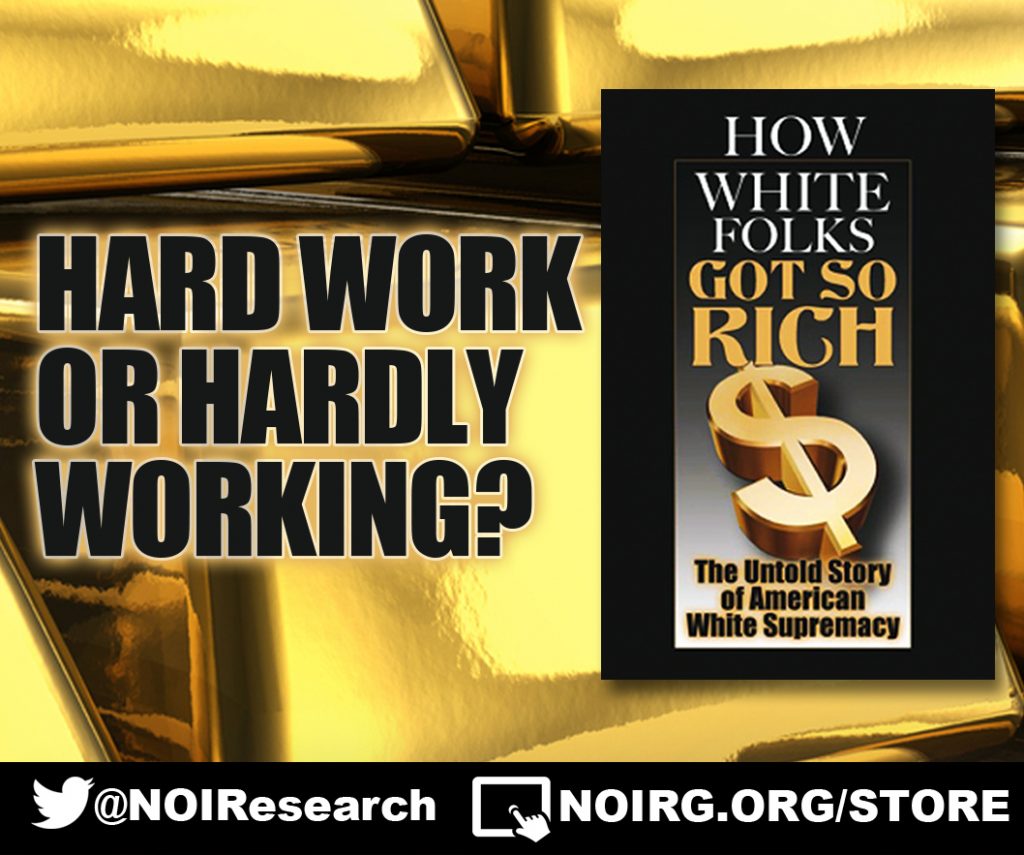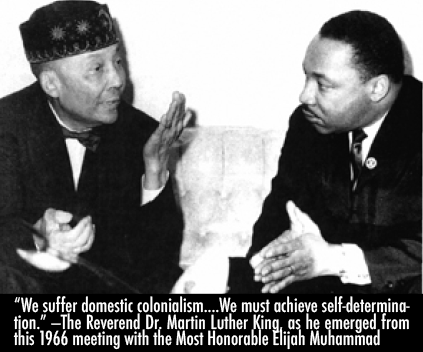7 Shocking Quotes from Martin Luther King, Jr.
The Rev. Dr. Martin Luther King, Jr., is the victim of IDENTITY THEFT. White America was so desperate to have a Black leader guide its restless and awakening Blacks back into subservience that it took a gifted soldier of truth and put words in his mouth and made him everything white Americans wanted him to be. Let us FINALLY look at who Dr. King actually is. Dr. King evolved into a strategic thinker and planner—and a razor-sharp critic of white supremacy. He did not mince words: his speeches were a clear and concise damnation of a SYSTEM that had destroyed his people. His last speech the night before his murder in Memphis on April 4th, 1968—I Have Been To the Mountaintop—has been heavily edited and redacted by whites to censor and evade his instructions to Blacks: to establish an ECONOMIC foundation for their freedom. He said nothing of voting or integration; he said that when we Blacks feel pain, “we must kind of redistribute the pain” in the form of boycotts and the use of Black spending power as a weapon for our own advancement. He termed it “economic withdrawal.”
King said and did more. Even as today’s negro leaders shake and shiver at the name FARRAKHAN, Dr. King sought out meetings with Minister Farrakhan’s Teacher, The Most Honorable Elijah Muhammad. He spoke highly of and openly met with Black figures that frightened the hell out of white people: Stokely Carmichael, Malcolm X, and Muhammad Ali. Indeed, Dr. King emerged from his 1966 meeting with the Hon. Elijah Muhammad with these words:
“We suffer domestic colonialism….We must achieve self-determination.”
Other quotes from Dr. King would make white people RE-THINK the gigantic statue they have put up in his memory, and the 900+ streets named after King in 42 states and Puerto Rico. Here are 7 SHOCKING Quotes by Dr. King:
- Dr. King asked, “Why does white America delude itself, and how does it rationalize the evil it retains?” He said white people’s belief in the fairness of America “is a fantasy of self-deception and comfortable vanity….There aren’t enough white persons in our country who are willing to cherish democratic principles over privilege.”
- “White Americans left the Negro on the ground and in devastating numbers walked off with the aggressor. It appeared that the white segregationist and the ordinary white citizen had more in common with one another than either had with the Negro.”
- To his friend Harry Belafonte he said: “I’ve come to the realization that I think we may be integrating into a burning house.”
- King’s critique of Jewish behavior in the ghetto was stinging: “We were living in a slum apartment owned by a Jew and a number of others, and we had to have a rent strike. We were paying $94 for four run-down, shabby rooms, and we would go out on our open housing marches on Gage Park and other places and we discovered that whites with five sanitary, nice, new rooms, apartments with five rooms, were paying only $78 a month. We were paying 20 percent tax. The Negro ends up paying a color tax, and this has happened in instances where Negroes actually confronted Jews as the landlord or the storekeeper.”
- If you thought King had faith in the “political process”: “Throughout our history, laws affirming Negro rights have consistently been circumvented by ingenious evasions which render them void in practice. Laws that affect the whole population—draft laws, income-tax laws, traffic laws—manage to work even though they may be unpopular: but laws passed for the Negro’s benefit are so widely unenforced that it is a mockery to call them laws.”
- King’s systems analysis could only frighten the American elite: “The trouble is that we live in a failed system. Capitalism does not permit an even flow of economic resources. With this system, a small privileged few are rich beyond conscience and almost all others are doomed to be poor at some level….That’s the way the system works. And since we know that the system will not change the rules, we’re going to have to change the system.”
- Even Dr. Martin Luther King, Jr., conceded, “there are points at which I see the necessity for temporary separation as a temporary way-station to a truly integrated society.”
These quotes show that Dr. King could not be counted upon to carry the failed empowerment strategies promoted by the white financiers of the American Civil Rights Movement. King evolved to understand that the white and Jewish “philanthropists” that paid for Blacks’ INTEGRATION achieved their own status of wealth and power not through voting or integration but through the building of an ECONOMIC community infrastructure, on which they built independent institutions to serve and protect their own ethnic communities. Could King be any clearer than these words from his LAST and MOST DANGEROUS speech?
“But not only that, we’ve got to strengthen black institutions. I call upon you to take your money out of the banks downtown and deposit your money in Tri-State Bank. We want a ‘bank-in’ movement in Memphis. Go by the savings and loan association. I’m not asking you something that we don’t do ourselves at SCLC. Judge Hooks and others will tell you that we have an account here in the savings and loan association from the Southern Christian Leadership Conference. We are telling you to follow what we are doing. Put your money there. You have six or seven black insurance companies here in the city of Memphis. Take out your insurance there. We want to have an ‘insurance-in.'”
“Now these are some practical things that we can do. We begin the process of building a greater economic base. And at the same time, we are putting pressure where it really hurts. I ask you to follow through here.”
As Dr. King began his last campaign it was a decidedly ECONOMIC in nature. So much so he called it the “POOR PEOPLE’s CAMPAIGN.” As he went through the nation to organize it he gave this shocking 169-word analysis:
“At the very same time that America refused to give the Negro any land, through an act of congress our government was giving away millions of acres of land in the West and the Midwest, which meant that it was willing to undergird its white peasants from Europe with an economic floor. But not only did they give the land, they built land grant colleges with government money to teach them how to farm. Not only that, they provided county agents to further their expertise in farming. Not only that, they provided low interest rates in order that they could mechanize their farms. Not only that, today many of these people are receiving millions of dollars in federal subsidies not to farm and they are the very people telling the Black man that he ought to lift himself by his own bootstraps. This is what we are faced with and this is a reality. Now, when we come to Washington in this [Poor People’s] campaign, we’re coming to get our check.“
Let us honor Dr. King FROM NOW ON—not by putting up more statues and naming streets for him, but by actually taking and following through on his economic advice!
Source: Many of these quotes are published in the new, updated, and expanded book, HOW WHITE FOLKS GOT SO RICH: The Untold Story of American White Supremacy.] 
BONUS QUOTES: In his famous “Letter from Birmingham Jail,” (April 16, 1963) Dr. King signaled his utter disgust with the white liberals that he had been told he could trust to “help” aid in Black advancement:
“I have been gravely disappointed with the white moderate. I have almost reached the regrettable conclusion that the Negro’s great stumbling block in the stride toward freedom is not the White Citizen’s Councilor or the Ku Klux Klanner, but the white moderate who is more devoted to “order” than to justice; who prefers a negative peace which is the absence of tension to a positive peace which is the presence of justice…”
On the Vietnam war:
“And I am sad to say that the nation in which we live is the supreme culprit.…God didn’t call America to engage in a senseless, unjust war, as the war in Vietnam. And we are criminals in that war. We have committed more war crimes almost than any nation in the world, and I’m going to continue to say it…”
King said during a February 1968 trip to Mississippi,
“It didn’t cost the nation one penny to integrate lunch counters….but now we are dealing with issues that cannot be solved without the nation spending billions of dollars and undergoing a radical redistribution of economic power.”
On Uncle Toms:
“There are Negroes who will never fight for freedom. There are Negroes who will seek profit for themselves from the struggle. There are even some Negroes who will cooperate with their oppressors. The hammer blows of discrimination, poverty and segregation must warp and corrupt some. No one can pretend that because a people may be oppressed, every individual member is virtuous and worthy.”
In 1960, King spoke on Black Education and school integration:
“White people view Black people as inferior. A large percentage of them have a very low opinion of our race. People with such a low view of the Black race cannot be given free reign and put in charge of the intellectual care and development of our boys and girls. I don’t see school integration successfully happening right now and being beneficial.…It will be disastrous.”



